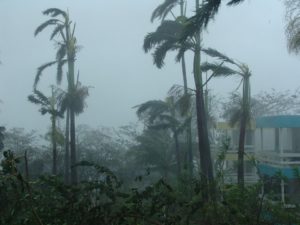 Courtesy of iii.org
Courtesy of iii.org
The vehicle you own, your personal priorities and your budget all factor into your unique auto insurance needs. Before comparing policies and insurers, evaluate how you use your car and what risks you face to figure out what options make the best sense for you.
1. How much do you drive?
Do you absolutely need your car every day—for instance, to commute to work or drive the kids to school and activities? Do you drive 100 miles a month or closer to 1,000 or more? Make sure your policy reflects how much you use your car. If you don’t drive a lot, you may want to opt for mileage-based insurance.
2. Will you be using your car for work?
If you use your car not just to get to work, but to perform tasks for which you get paid, commercial auto insurance is a necessity. A personal auto policy will not provide coverage if you transport paying passengers through a ride-share service, deliver pizzas, drive as a courier or use your car for other commercial activities.
3. What type of car do you drive?
Insurers have mountains of data, and they know in precise detail what types of cars, makes and models are more—or less—likely to incur claims. A flashy sports car with a powerful engine may be more likely to be stolen and its bodywork costs will be more than on a mid-sized sedan—and your insurance will be priced accordingly. Some types of cars—such as modified or classic cars—require special insurance. By the same token, you may receive discounts if you have a “safe” car—one with the latest safety features and a good safety record.
4. How much do you love your car?
If you love the way your vehicle looks and take pride in its appearance, you’ll likely want it fixed perfectly—or replaced with the same model—if it gets damaged. That means you’ll probably to consider the fullest range of insurance—including collision, comprehensive and glass coverage. On the other hand, if you drive a beater, see cars merely as transportation and want to save on premiums, you might prefer to limit your policy to liability.
5. Where do you live—and park your car?
Where you live will impact your insurance rates—and it may be a factor in what coverage you purchase. For example, cars parked on the street in urban areas face a greater risk for theft or vandalism, so comprehensive coverage might be a good option. You may discover that your premium rates are lower if you move from a city to a suburb.
6. Who else will be driving the car?
Generally, your car insurance will cover other occasional drivers. However, if other drivers live with you and use your car—whether a spouse, a teen driver or a housemate—they should be listed on your policy.
7. What are your legal obligations?
Nearly every state requires that you carry minimum liability coverage for your car. At the very least, you need to make sure your policy complies with state mandates. However, the levels of required coverage are generally pretty low. Keep in mind that, if you are involved in a serious accident, you may be sued for a large sum of money. Depending on your assets and financial risk tolerance, to be safe, you’ll probably want to purchase a higher level of liability coverage.
8. Is your car financed or leased?
If you still owe money on your car or have to return it in good condition when a lease expires, you’ll likely be required to insure the car for its full value—and even for any gap between what you owe and the car’s market value. Collision and comprehensive will cover damage to your car—and supplemental gap insurance will cover the rest.
Keep in mind that your insurance options and costs will also be affected by your age, gender and driving record. Be aware too that your credit score can also impact your insurance rates. Once you’ve looked at your needs and priorities, and understood how insurance options will match them, you’ll be better prepared to make an informed decision about the types and levels of coverage to buy.
Now that you know your needs, here’s how to choose an insurance company.



 2020 has aged us all….
2020 has aged us all….